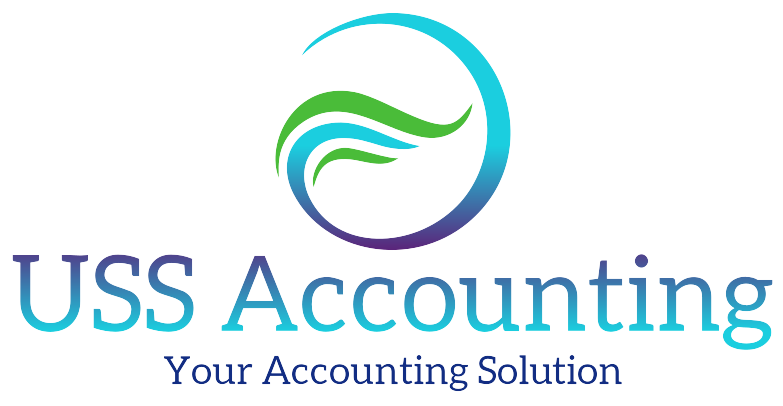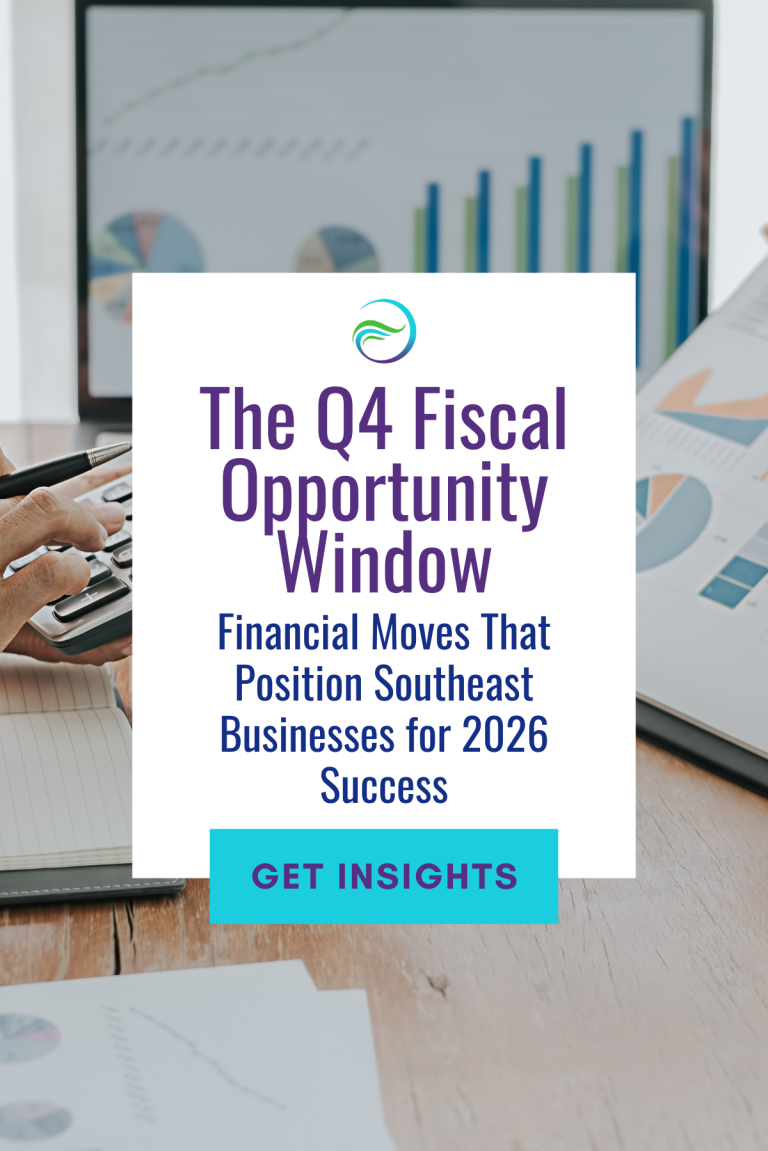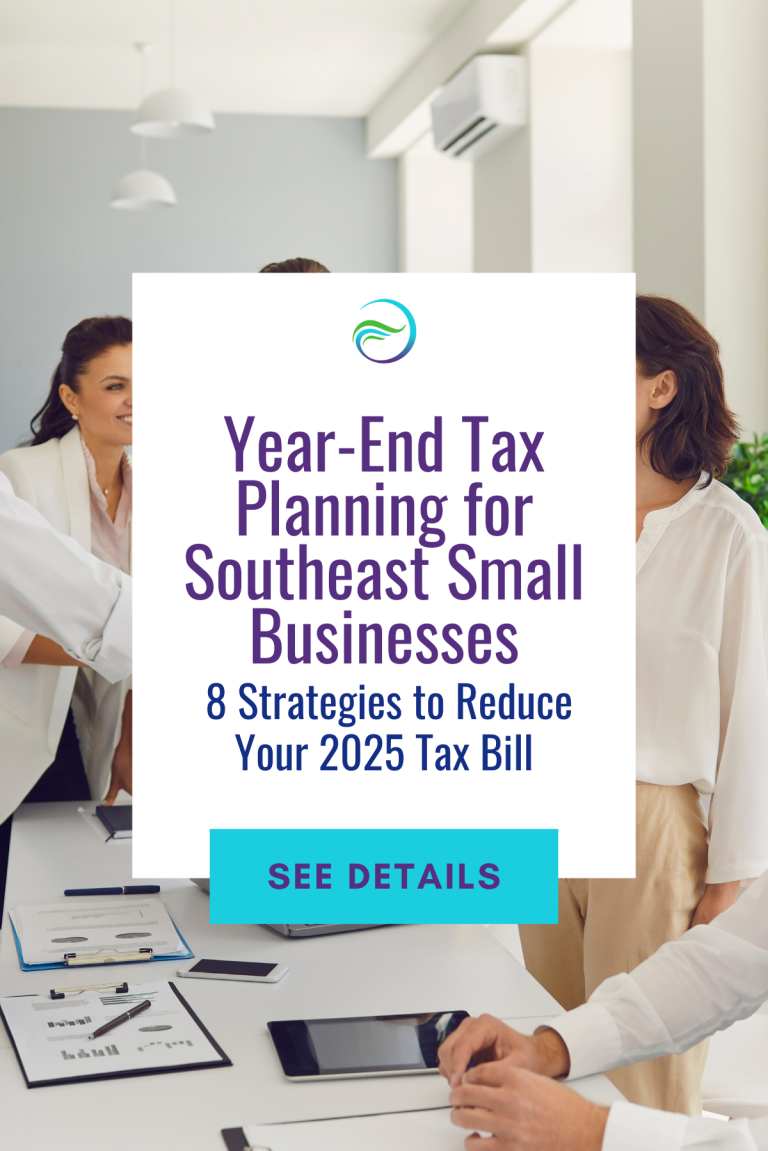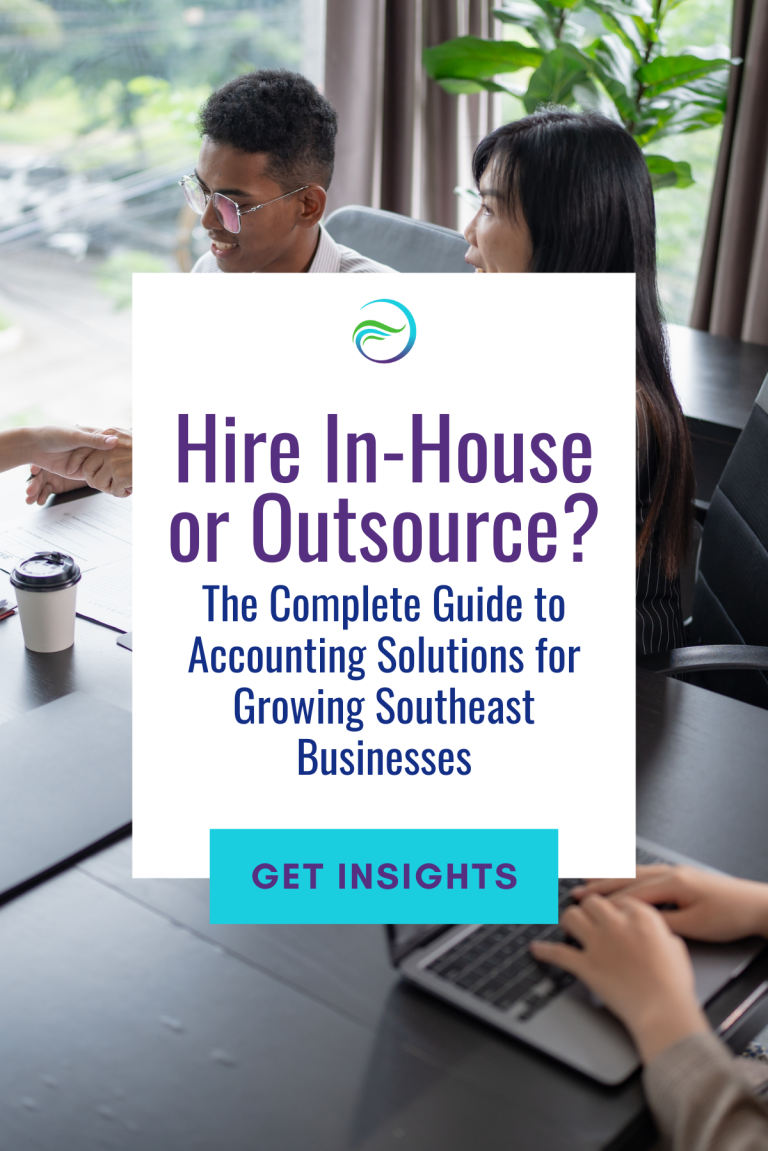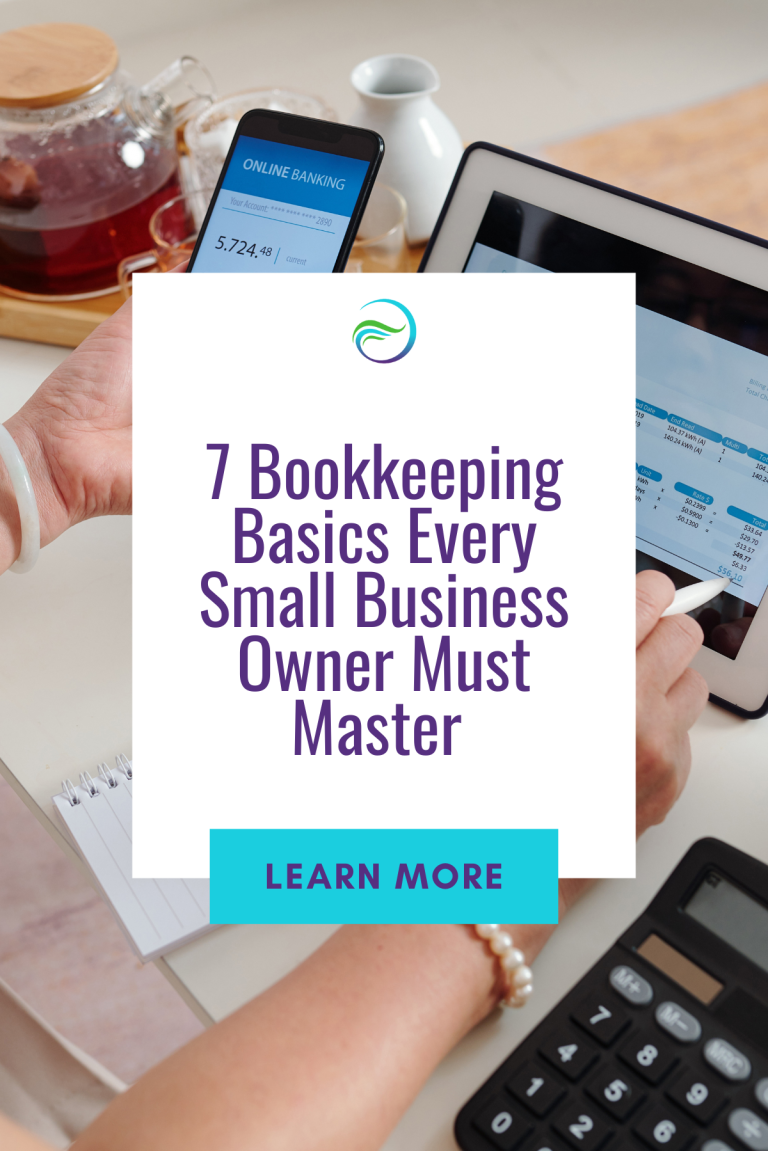
Your year-end financial review should start NOW, not December 20th.
Here’s the uncomfortable truth: Most Atlanta, Charlotte, and Greenville-Spartanburg business owners wait until the last possible moment to tackle year-end financials. Then December arrives with its holiday chaos, staff vacations, and end-of-quarter rush—and suddenly you’re scrambling to piece together 12 months of financial decisions in a handful of frantic days.
The result? Missed tax deductions worth thousands of dollars. Rushed financial decisions you’ll regret in January. Higher accounting fees because everything’s an emergency. And worst of all—entering 2026 with zero clarity on where your business actually stands.
At USS Accounting, we work with Southeast businesses generating $500K to $2M in revenue across Atlanta, Charlotte, and the Greenville-Spartanburg region. Every November, we see the same pattern: businesses that prepare now set themselves up for a smooth year-end close and a strong start to 2026. Those who wait? They’re still fighting fires in February.
This guide walks you through the five critical financial tasks you must complete in November—before the December deadline pressure hits. Whether you handle bookkeeping in-house or work with an outsourced accounting team, these steps apply to every Southeast small business.
Why November Matters More Than December
November is the sweet spot for year-end financial planning. Your Q3 numbers are finalized, giving you a clear picture of year-to-date performance. You still have time to implement tax-saving strategies before December 31. And most importantly—you can make informed decisions without the pressure cooker atmosphere of late December.
Consider this hypothetical scenario: An Atlanta-based professional services firm reviews their financials in mid-November and discovers they’re on track for higher-than-expected profit. With six weeks remaining, they can strategically invest in equipment purchases that qualify for Section 179 deductions, potentially saving $15,000-$25,000 in taxes. A Charlotte manufacturer in the same situation who waits until December 28? Their options are severely limited, and they likely overpay their tax bill.
Timing isn’t everything—but in year-end financial planning, it’s almost everything.
Task #1: Review Your Year-to-Date Financial Performance
Before you can plan for year-end, you need to know exactly where you stand right now. This means pulling together your complete financial picture through October 31.
What to Review:
If your books aren’t current, this is your first priority. November is not the time to be working with August numbers. Professional bookkeeping services can help you get caught up quickly if you’ve fallen behind.
Task #2: Organize and Digitize Your Financial Documentation
Year-end tax preparation is infinitely easier when your documentation is organized and accessible. November is the month to implement a system that prevents the December scramble for receipts and invoices.
Essential Documents to Organize:
Pro tip for Southeast businesses: Many Atlanta, Charlotte, and Greenville companies use multiple banking relationships. If this describes your business, create a master tracking document that shows all accounts, their purposes, and reconciliation status. This single step can save dozens of hours in December and January.
Task #3: Review Payroll Compliance and W-2 Readiness
Payroll represents one of your largest expenses and carries significant compliance requirements. November is when you should verify everything is positioned for a smooth year-end payroll process.
Critical Payroll Items to Verify:
A hypothetical example: A Charlotte-based professional services firm discovered in their November payroll review that one employee’s 401(k) contributions had been miscalculated since July. By catching it in November, they had time to correct the error, make up the missed contributions, and avoid potential compliance issues. Discovering this in January would have been far more problematic.
Task #4: Conduct a Strategic Tax Planning Review
The six weeks between Thanksgiving and year-end represent your final opportunity to implement tax-saving strategies for 2025. But effective tax planning requires understanding your current tax position and available options.
Key Tax Planning Considerations:
Important: Tax planning is complex and highly individual. The hypothetical strategies mentioned here may or may not apply to your specific situation. Work with a qualified tax professional to develop a customized year-end tax strategy.
Task #5: Set Your 2026 Financial Foundation
Year-end isn’t just about closing out 2025—it’s about setting yourself up for success in 2026. November is when successful Southeast businesses begin building their financial framework for the coming year.
2026 Planning Essentials:
Consider this hypothetical scenario: A Greenville retail business used their November planning session to identify that their manual inventory tracking system had cost them an estimated $30,000 in lost sales and excess carrying costs during 2025. By investing in proper inventory management software in December and implementing it in January, they positioned themselves to recapture those losses in 2026.
The November Advantage: Real Results
Businesses that complete these five tasks in November consistently outperform those who procrastinate until December. They enter January with clarity, confidence, and a solid financial foundation.
More importantly, they avoid the year-end panic that leads to costly mistakes. They don’t miss tax deductions because they ran out of time. They don’t face payroll compliance issues because W-2s were rushed. They don’t start 2026 uncertain about their financial position.
The difference between a business that tackles year-end planning in November versus late December is measured in thousands of dollars, dozens of hours, and significant stress reduction. For Southeast businesses operating in competitive markets like Atlanta, Charlotte, and Greenville-Spartanburg, that difference can be the margin between growth and stagnation.
Frequently Asked Questions
When should I start my year-end financial planning?
November is ideal for most businesses. This timing gives you six weeks to implement tax-saving strategies, organize documentation, and make informed decisions before the December 31 deadline. Waiting until December significantly limits your options and increases your stress. Many successful Southeast businesses actually begin preliminary year-end planning in October.
Do I need a professional accountant for year-end planning?
While some aspects of year-end planning can be handled internally, working with professional outsourced accounting services typically provides significant value. Professionals can identify tax-saving opportunities you might miss, ensure compliance with complex regulations, and provide strategic guidance. For businesses generating $500K-$2M in revenue, the cost of professional services is usually offset many times over by tax savings and avoided errors.
What’s the biggest mistake businesses make with year-end planning?
Procrastination is the single biggest mistake. Waiting until mid-December to begin year-end financial planning severely limits your options and forces rushed decisions. The second biggest mistake is focusing exclusively on taxes while neglecting the strategic planning aspects—year-end is an opportunity to assess your overall financial health and set yourself up for success in the coming year.
How are year-end requirements different for Georgia, North Carolina, and South Carolina businesses?
While federal requirements are consistent across states, each state has specific tax provisions, filing deadlines, and compliance requirements. Georgia businesses need to consider state income tax planning and specific industry credits. North Carolina has unique franchise tax requirements and various business incentive programs. South Carolina offers specific tax credits that Southeast businesses should evaluate. Working with an accountant familiar with multi-state Southeast businesses ensures you’re compliant with all jurisdictions and taking advantage of available benefits.
Should I make major equipment purchases before year-end for tax purposes?
Equipment purchases can provide significant tax benefits through Section 179 deductions and bonus depreciation, but they should never be made purely for tax purposes. First determine if the equipment serves a legitimate business need and provides positive ROI. Then factor in the tax benefits as an additional advantage. A tax deduction on an unnecessary purchase isn’t a smart business decision—it’s just a smaller loss than it would have been without the deduction.
Take Action: Your Year-End Success Starts Now
You have six weeks to complete these five critical financial tasks. That’s plenty of time if you start now, but it disappears quickly if you wait.
Here’s your immediate next step: Block three hours on your calendar this week for a comprehensive financial review. Pull your financial statements, assess your current position, and identify which of these five tasks need the most attention. Don’t try to complete everything in one session—just get started.
For businesses that need support with year-end planning, USS Accounting works with Atlanta, Charlotte, and Greenville-Spartanburg businesses to ensure a smooth, strategic year-end process. Our team understands the unique challenges facing Southeast businesses and can provide the expertise you need to close out 2025 strong and enter 2026 positioned for growth.
The best time to start year-end planning was October. The second best time is today. Download our free Year-End Financial Checklist and start protecting your profits now.
